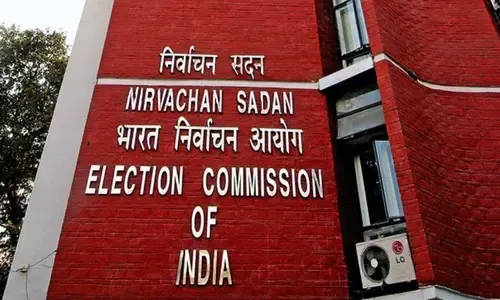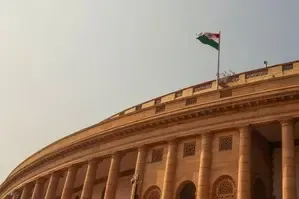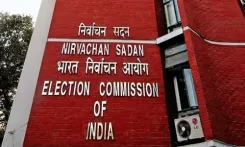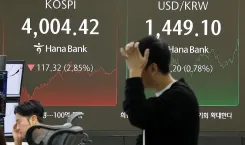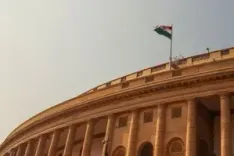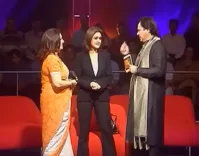Is the Preamble of the Constitution Unchangeable?
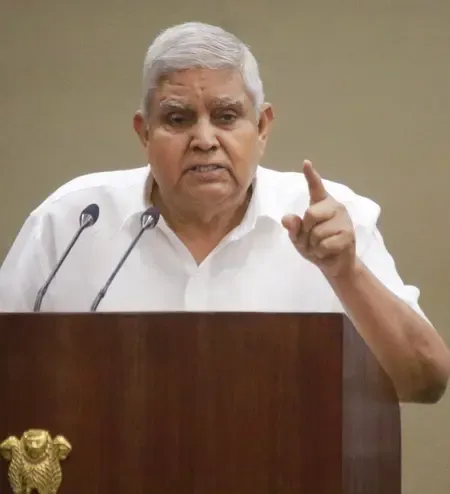
Synopsis
Key Takeaways
- The Preamble is the soul of the Constitution.
- Alterations during the Emergency are viewed as detrimental.
- Ambedkar's vision remains relevant today.
- Democracy must be upheld against historical injustices.
- Judiciary is a critical pillar of democracy.
New Delhi, June 28 (NationPress) Vice-President Jagdeep Dhankhar remarked on Saturday that the Preamble of the Indian Constitution serves as its very essence, distinguishing it as exceptional among constitutions globally.
He condemned the alterations made during the Emergency, labeling them as incorrect.
According to Vice-President Dhankhar, no other nation has amended its Preamble in the same way as India has.
He criticized the addition of the terms "Socialist," "Secular," and "Integrity" through the 42nd Constitutional Amendment in 1976, calling it an infringement upon the Constitution's essence during the bleak period of the Emergency.
At a gathering at the Vice-President's residence, he received the inaugural copy of the book "Ambedkar ke Sandesh" (Messages of Ambedkar), curated by former Karnataka Member of Legislative Council and author D.S. Veerayya.
During this event, Dhankhar stated, "The Emergency was the darkest chapter in Indian democracy. During that time, individuals were imprisoned, and fundamental rights were suspended. 'We, the People of India,' the source of the Constitution's authority, were shackled. Was this merely a play on words? No. This must be condemned in the strongest terms."
Referring to the landmark 1973 Kesavananda Bharati vs. State of Kerala case, he pointed out that a 13-judge bench recognized the Preamble as the guiding principle for interpreting the Constitution.
Justice H.R. Khanna indicated that the Preamble signifies that the Constitution's authority emanates from 'We, the People of India.'
Vice-President Dhankhar characterized the amendments made to the Preamble during the Emergency (June 25, 1975 - March 21, 1977) as a representation of injustice.
He remarked, "At a time when individuals were imprisoned and denied justice, the soul of the Constitution was altered. What greater mockery of justice could there be? The Preamble, which stems from 'We, the People of India,' was modified while the populace was enveloped in darkness."
He firmly asserted that the inclusion of the words "Socialist," "Secular," and "Integrity" amounted to a betrayal of the intentions of the Constitution's framers.
He expressed, "These additions are a festering wound. They will foster unrest. This is an affront to our ancient civilizational heritage and wisdom. It shows a blatant disrespect to the essence of Sanatan Dharma."
Reflecting on B.R. Ambedkar's contributions, the Vice-President noted that his messages remain pertinent today.
"Ambedkar resides in our hearts. His ideas resonate deeply. The book 'Ambedkar ke Sandesh' should be disseminated among MPs, MLAs, and policymakers. We need to reflect on why the sanctity of our democratic institutions is being compromised. Why are disruptions detrimental to our democracy?"
Highlighting the judiciary as a vital pillar of democracy, Vice-President Dhankhar underscored that two major benches of the Supreme Court - one comprising 11 judges (I.C. Golaknath vs. State of Punjab) and another with 13 judges (Kesavananda Bharati vs. State of Kerala) - regarded the Preamble as the quintessence of the Constitution's principles and aspirations.
He portrayed Ambedkar as a visionary and a national icon, commending his extraordinary struggles.
"It is regrettable that Ambedkar was posthumously awarded the Bharat Ratna in 1990. Why was there such a delay? We need to internalize his thoughts."
He quoted Ambedkar's words: "I desire every Indian to prioritize being Indian first, last, and exclusively an Indian."
He reiterated Ambedkar's concern that India had lost its freedom previously due to treachery from within.
The Vice-President inquired, "Will history repeat itself? If political parties elevate their ideologies over the nation, our freedom could be jeopardized. We must commit to safeguarding our nation's freedom until our final breath."
Once again reflecting on Ambedkar's wisdom, Vice-President Dhankhar concluded: "Ambedkar was a visionary leader—not just a politician, but a remarkable human being and a national symbol. His life journey was extraordinary, filled with considerable struggles. It is astonishing that Ambedkar received the Bharat Ratna posthumously. I was a Member of Parliament and a Minister in 1990 when he was honored. But it pained my heart—why such a delay? Why posthumously? That is why I share his words for national introspection."

